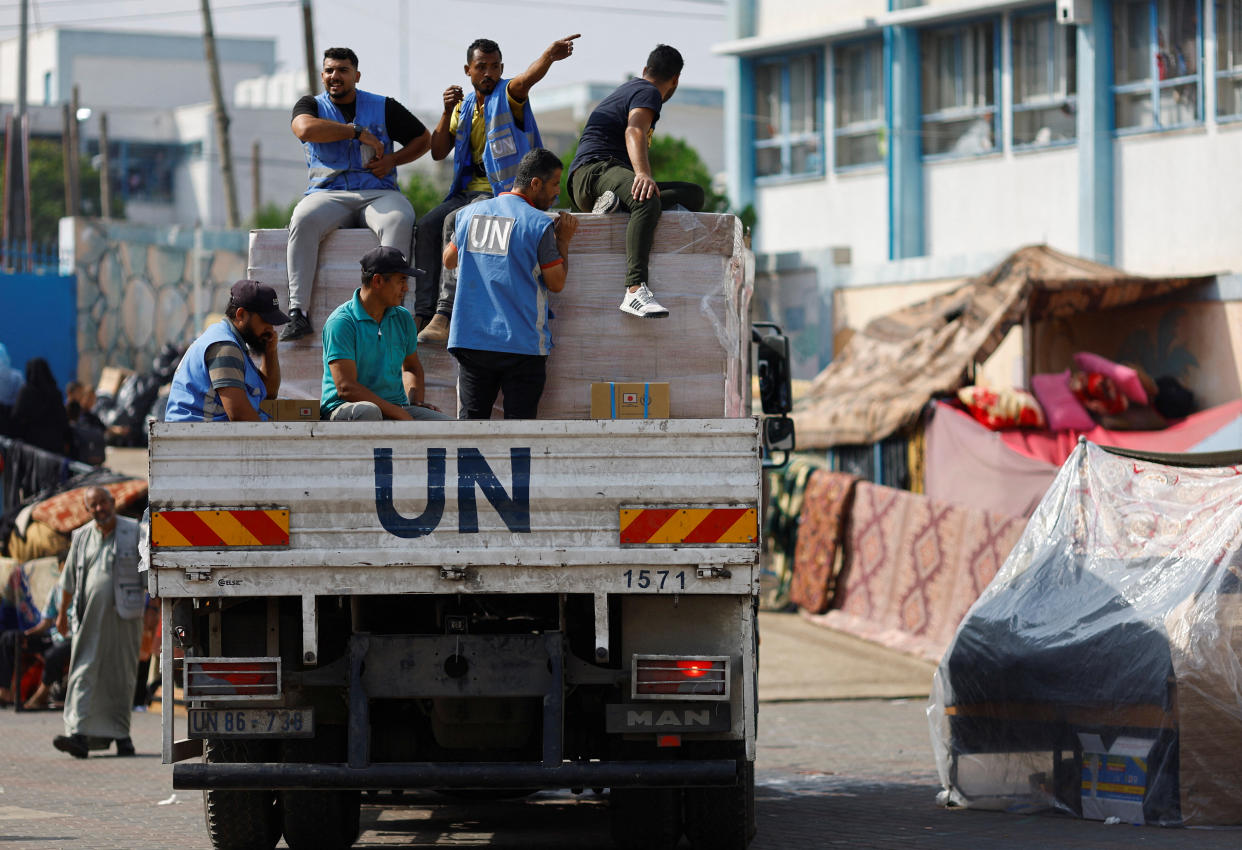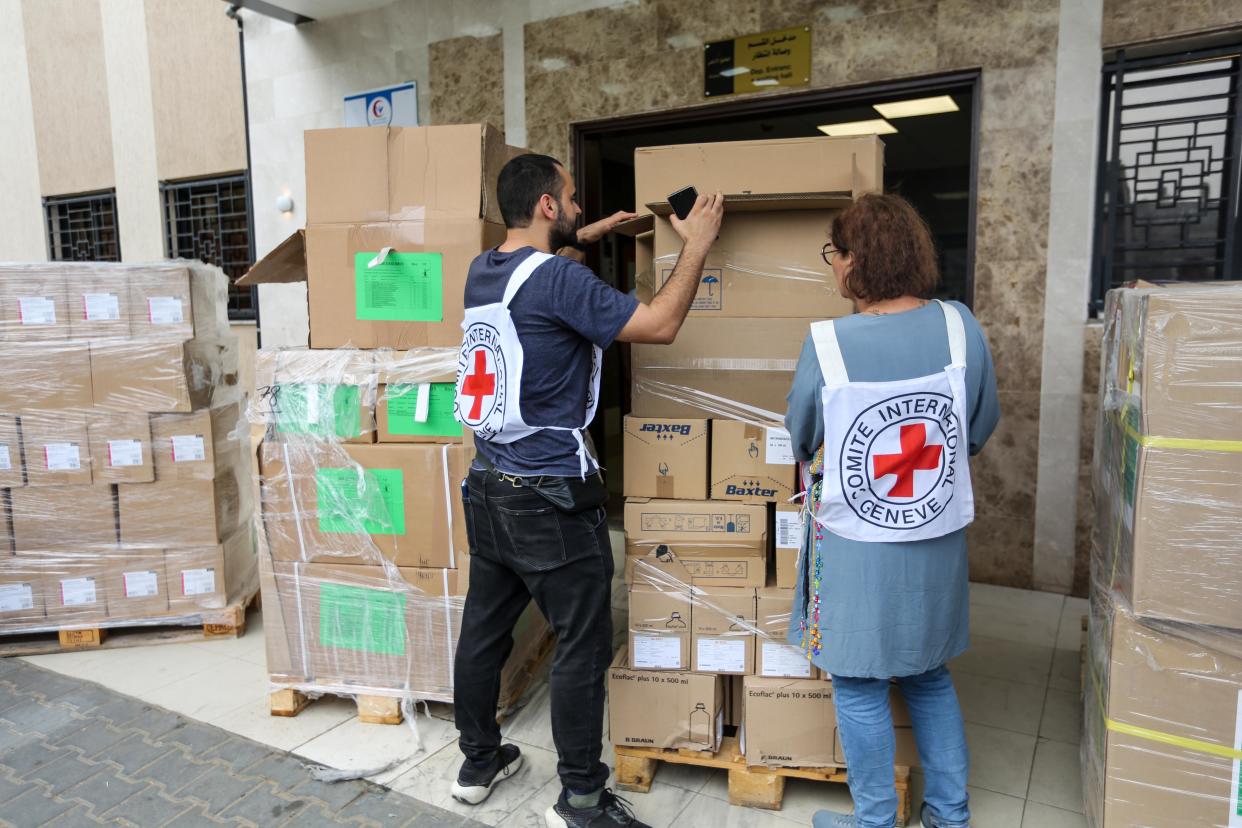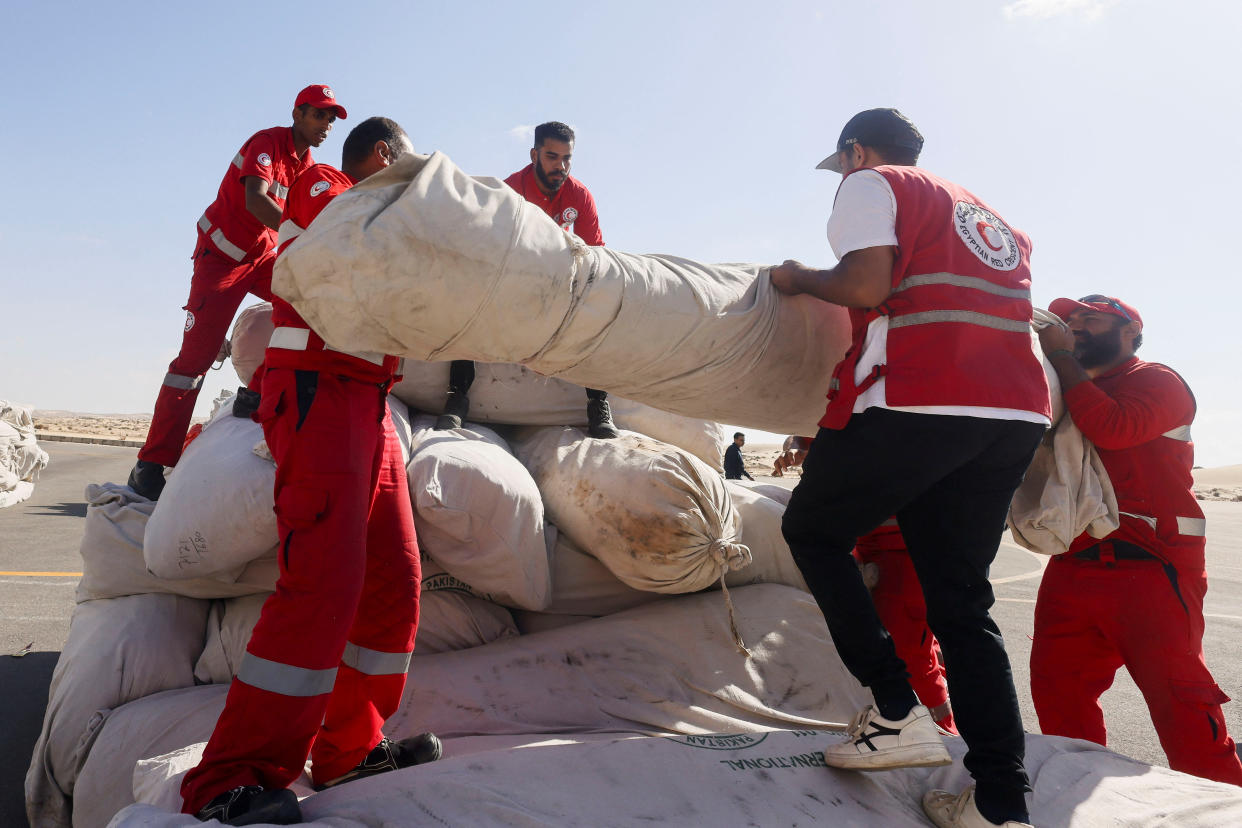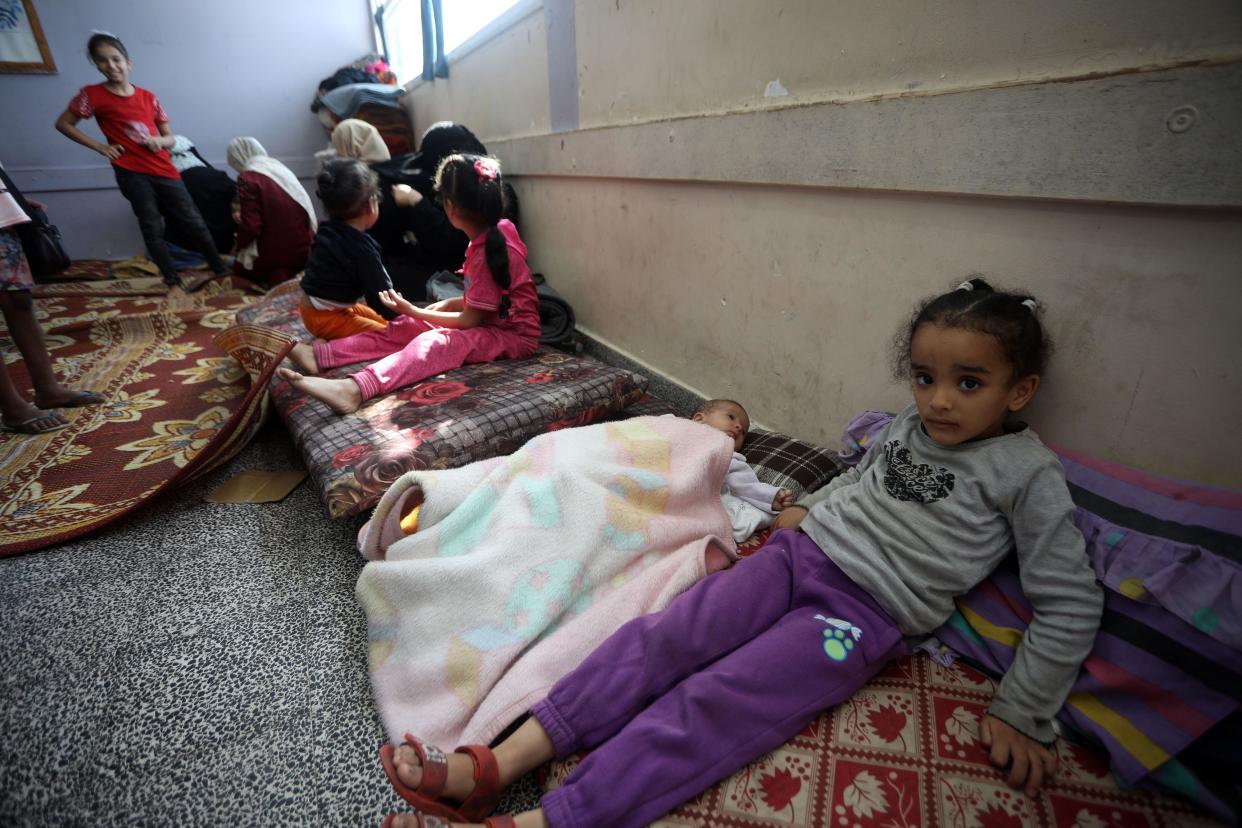Gaza: Families forced to survive on canned cheese handouts – ''That's all we had'
Gazans are being given canned cheese or a piece of bread for the day by overstretched aid agencies
Over 50 workers from the UNRWA aid agency have been killed since Israel's war with Gaza began
UNWRA's director says that aid coming from Egypt isn't enough to stop the humanitarian crisis

People in Gaza are living on as little as a can of cheese or a piece of bread per day as emergency supplies run dangerously low, a United Nations aid director has said.
Thomas White, director of UNRWA agency for Palestinian refugees, said that aid workers very often don't have anything else to give civilians, who are more than three weeks into Israel's siege of the Gaza Strip.
He added that some people are resorting to drinking non-bottled water, warning that if a waterborne disease were to start spreading through the population, it would have a "devastating" impact.
After Hamas launched a surprise attack on Israel on 7 October, killing 1,400 people, the Israeli military enforced a "total blockade" on Gaza, blocking supplies of food, water, electricity and other essentials.
Some aid has been trickling in from across the Rafah crossing on Egypt's border, with the UN saying that 33 aid trucks crossed into the Strip on Sunday, but White said far more is needed to meet the Palestinian people's needs.
He told BBC Radio 4's Today Programme: “Thirty trucks, 50 trucks, is not going to meet the requirements in Gaza.
"We need hundreds of trucks moving into Gaza every day, and that is just to meet the basic humanitarian need – food, fuel for desalination plants for water, literally those lifesaving interventions."

Recommended reading
Israel-Hamas war: six key moments for the Gaza Strip (The Conversation)
UN: Thousands in Gaza break into warehouses in search of aid (BBC News)
Israel-Hamas war: 5 key developments on Sunday 29 October (Yahoo News)
US says Israel must protect Gaza civilians as calls for aid grow (AFP)
"We don’t have the food reserves that we need to provide for those people," said White, when asked what people are being given to eat each day.
"For many people it’s a piece of khobez – a piece of round Arabic bread – and when we can, we’re giving them canned food.
“In the south in Rafah yesterday for example we distributed canned cheese, that’s all we had, so people are really going without food.
"Also, a major concern is that people are drinking non-bottled water. And if an infectious disease, a waterborne disease, gets going in Gaza, it’s going to be devastating.”
It is not hard to imagine why people would go to such desperate lengths to stay hydrated. Earlier this month a journalist shared a video showing how she struggled to find any water at several shops in central Gaza.

The war is also taking its toll on aid workers themselves, many of whom are displaced themselves and are leaving their families in UN-run shelters to come to work every day, said White.
"Tragically we’ve lost over 50 colleagues now and I fear that number is going to continue to rise," he added.
"Never in my years have I been involved in an aid operation where all of your staff are fundamentally affected by the conflict. They’ve lost family members, they’ve lost colleagues and a large proportion of them are displaced themselves.”
Aid workers faced significant challenges over the weekend when Israel imposed an internet and telephone blackout on Gaza on Friday, which started to ease on Sunday.
World Food Programme chief Cindy McCain posted: "The silence is deafening. As conflict rages on, I am extremely worried for the safety of all humanitarian workers and civilians.”
She added: “With communications cut in #Gaza, our lifesaving food assistance is at a standstill. We cannot reach staff and partners, or the people who rely on us."
'Public services could collapse'
After thousands of Gazans raided UNRWA warehouses over the weekend in search of essential supplies, the agency said signs were showing "that civil order is starting to break down".
Palestinians are in need not only of aid, but also of reliable public services, said White, with hospitals already pushed to breaking point after more than three weeks of relentless bombing, and the local health ministry saying the death toll in Gaza has passed 8,000.
"What we’re very concerned about now is that the public sector and the private sector will collapse," White said, adding that the south of the territory is struggling to cope with the influx of people fleeing from the north.
"Those public services which are essential, for what is essentially quite a large urban population here in southern Gaza, that is now coping with double the population."

Israel under pressure to protect civilians and increase aid
It may be one of Israel's closest allies, but the US is also growing increasingly concerned for the welfare of ordinary civilians in Gaza.
President Joe Biden's administration has been trying to balance its steadfast support for Israel with the growing human cost in the Strip.
On Sunday, Biden spoke with Israeli prime minister Benjamin Netanyahu, stressing that while the Jewish state has a right to defend itself, it must do so in a way that is consistent with international law.
The White House said Biden also "underscored the need to immediately and significantly increase the flow of humanitarian assistance to meet the needs of civilians in Gaza".
That same day, Colonel Elad Goren, a spokesperson for the Israeli Defence Ministry's Cogat agency that communicates with Palestinians, said: "In the coming week we were planning to increase dramatically the amount of assistance."
He reiterated calls for Gazans to evacuate to what he described as a "humanitarian" zone in the south of the territory, which is closer to where aid is arriving.
However, it may not be that simple for some Palestinians, warned White, who said: “The reality is many people in the north can’t move because they physically don’t have the transportation – they don’t have the means.”


